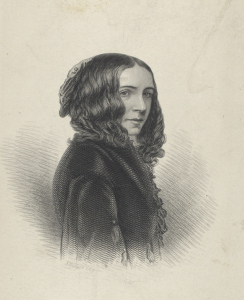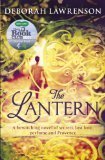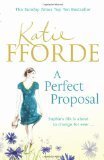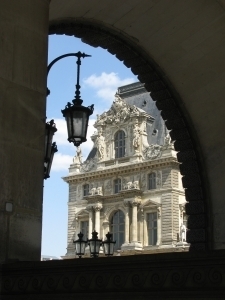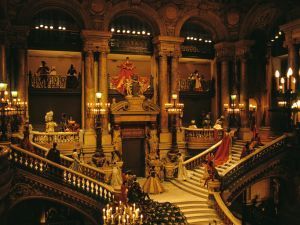Hannah Fielding's Blog, page 135
February 27, 2013
A private beach
 I’ve spent many a happy afternoon lazing, dreaming and swimming at this lonely spot not far from my house in Ste Maxime.
I’ve spent many a happy afternoon lazing, dreaming and swimming at this lonely spot not far from my house in Ste Maxime.
February 26, 2013
A sweet taste of France: Fours Pochés biscuits
One of the best things about the travelling I do, and living in two different countries, is the cuisines I get to explore. French food is divine, and for those with a sweet tooth, there are so many pastries and cakes and biscuits and chocolates to choose from in the pâtisserie, as the picture illustrates!
One of my favourites to buy is fours pochés – delicious and light piped biscuits. I also love to make them at home, because it gives me an excuse to have fun with the piping bag.
Here’s a simple recipe to try. It’s surprisingly easy, but the results look impressive, so this is a great recipe to have up your sleeve for when you have visitors.
Ingredients:
340g flour (pastry, ideally; if not, plain)
90g cocoa powder
160g unsalted butter, softened
90g caster sugar
1 1/2 egg whites
1. Preheat oven to 180 degrees C.
2. Line two baking sheets with greaseproof paper.
3. Cream together the butter and sugar.
4. Add the egg whites bit by bit and beat thoroughly.
5. Fold in the sifted flour and cocoa powder.
6. Put the mixture into a piping bag with a star-shaped tip. Pipe out swirls of around 3 centimetres, leaving room between each to allow for expansion.
7. Bake for 10 to 15 minutes, or until browning.
8. Cool on wire racks.
The biscuits last around five days when stored in an airtight container. If you’re feeling adventurous, try making two batches of mixture – one with the cocoa powder and the other with a couple of drops of vanilla essence, then swirl the two together into shapes to create chocolate-vanilla fours pochés. Delicious served with coffee!
February 24, 2013
Favourite poet: Elizabeth Barrett Browning
I love poetry. It’s a true art form; every word carefully selected; each stanza meticulously crafted. A poem has a unique ability to capture a moment, a mood, an interpretation that touches a reader’s thoughts and feelings. For me, a powerful poem can resonate with the soul, and echo in your mind for the rest of your life.
The nuns at my French convent school gave me a grounding in classic poetry, and I loved it so that I went on to study literature at university. Much of my study focused on French writers, but one English poet stood out for me. The writings and poems of Elizabeth Barrett Browning (1806–61) are the very epitome of romance. Take just a handful of examples from her many works:
How do I love thee? Let me count the ways./I love thee to the depth and breadth and height/My soul can reach
I love you not only for what you are, but for what I am when I am with you. I love you not only for what you have made of yourself, but for what you are making of me. I love you for the part of me that you bring out.
You’re something between a dream and a miracle.
You were made perfectly to be loved and surely I have loved you in the idea of you my whole life long.
Who so loves believes the impossible.”
… love me for love’s sake, that evermore/Thou may’st love on, through love’s eternity.
My heart sighs at the very reading.
What makes the romance so heightened is the fact that these are parts of real love letters between Elizabeth and Robert Browning (and he, in turn, wrote wonderfully romantic responses). Elizabeth was already a successful published writer when Robert Browning read her works and fell in love with her. He sought an introduction, and from there they began a secretive and highly passionate courtship. As man and wife, their passion for each other knew no bounds, and when Elizabeth passed away in Robert’s arms he said that she died ‘smilingly, happily, and with a face like a girl’s’.
Aside from her beautiful writing and her sublime ability to capture romance, I find Elizabeth’s works inspiring for my own writing. This was a woman who immersed herself in words; who was unafraid in exploring subjects that were controversial (her anti-slavery poems are a case in point); and who – for her times – was most impressively courageous in seeking an audience for her writing, despite a lifelong battle with ill health.
And what is not to admire in a woman who so loved books? Take the following from Aurora Leigh:
Books, books, books had found the secret of a garret-room
piled high with cases in my father’s name;
Piled high, packed large, – where, creeping in and out
among the giant fossils of my past, like some small nimble mouse
between the ribs of a mastodon, I nibbled here and there
at this or that box, pulling through the gap, in heats
of terror, haste, victorious joy, the first book first.
And how I felt it beat under my pillow, in the morning’s dark.
An hour before the sun would let me read!
My books!
If, like me, you find Elizabeth inspirational, I highly recommend the following books:
Sonnets from the Portuguese
Aurora Leigh
The Love Letters of Elizabeth Barrett and Robert Browning
Elizabeth Barrett Browning: A Biography by Margaret Forster
February 22, 2013
Book review: The Lantern by Deborah Lawrenson
From the blurb:
When Eve falls for the secretive, charming Dom, their whirlwind relationship leads them to purchase Les Genevriers, an abandoned house in a rural hamlet in the south of France. As the beautiful Provence summer turns to autumn, Eve finds it impossible to ignore the mysteries that haunt both her lover and the run-down old house, in particular the mysterious disappearance of his beautiful first wife, Rachel. Whilst Eve tries to untangle the secrets surrounding Rachel’s last recorded days, Les Genevriers itself seems to come alive. As strange events begin to occur with frightening regularity, Eve’s voice becomes intertwined with that of Benedicte Lincel, a girl who lived in the house decades before. As the tangled skeins of the house’s history begin to unravel, the tension grows between Dom and Eve. In a page-turning race, Eve must fight to discover the fates of both Benedicte and Rachel, before Les Genevriers’ dark history has a chance to repeat itself.
Set in a crumbling farm house in Provence, France, The Lantern tells the story of the residents of two house. The present occupants, Eve and Dom, have purchased their house after a whirlwind romance, but Dom is a man with a hidden past. The previous occupants from the 1930/40s – three siblings; Benedicte, Marthe and Pierre – also have a turbulent story to tell.
Over the course of the book many secrets are revealed with devastating consequences. The novel starts and ends with a love story which is intertwined with grief and guilt and mystery, lies and deceit. The author has a wonderful way of controlling the atmosphere – swinging between heavenly, sensuous and uplifting descriptions of the tastes, scents and stunning sights of southern France that meander and inspire, and dark, evocative and intriguing descriptions of blindness, insanity, depression and despair that create a page-turning plot.
Written from the points of view of Eve and Benedicte, their individual stories illustrate how their lives and the past intertwine. Benedicte describes the story of her life through a series of reflections in her old age, triggered by visions of people from her past, such as her blind sister who was a master perfumer and her malevolent and troubled brother. Eve’s story is about her search for answers to Dom’s dark moods and why he is withdrawing from her: what is he hiding and why won’t he speak about his ex-wife? She also describes the mysterious goings-on in the house, the strange shadows and flickering lights and scents and perfumes that appear to have no source.
Some of the most interesting descriptions in this book come from the link to perfume and lavender, scents which almost lift up from the page and embrace you. In fact, because of Benedicte’s sister’s blindness and profession, smell is a very important part of this book:
… I was becoming ever more alert to the sensuous power of smell. They say that the loss of one of the senses makes the others more acute. I’d go further: it makes the sense of the people around them grow more intense, too. Not only was I smelling in the way she taught me, but I was seeing, really seeing, details on her behalf that I might never have noticed otherwise. Like an atmosphere, like a taste, it is felt and experienced, and then it is gone. You can’t record it like music or conversation or a picture. You have to smell it again, and remember.
Benedicte also gives an interesting account of her time working on a lavender farm and the medicine and perfumes made with it.
Two characters in the book are writers, and I very much enjoyed references to this which spoke to the writer in me, such as:
Where lies the line between books and life, fact or fiction? Of seeing and being seen? It was only now, when events were unfolding, that I recognized, from books rather than experience, that I truly appreciated the boundaries between reality and art.
This book is a really interesting read, with stunning descriptions and so much going on. It reminds you that people are often not as they first seem and that being able to trust another is so important. Deborah Lawrenson does an amazing job at keeping you guessing until the very end at how these two stories and the lives of these characters are going to resolve. I really identified with the two main characters, Eve and Benedicte, and was shocked by the events that unfolded as other characters revealed their true selves. But despite the turmoil and heartache, I was left satisfied by the happy ending for Eve.
A brilliant book that I struggled to put down. Just thinking about brings forth the smell of lavender…
The Lantern is available now from Amazon; click on the book cover below to visit the store.
February 20, 2013
The romance of the mist
February 19, 2013
Is technology taking the magic out of romance?
I read a fascinating article on the CNN website the other day entitled ‘How technology has changed romance’ and it got me thinking: is technology aiding romance, or hindering it?
I love to write books set in the 1970s and 1980s, and part of the reason for this is that those were more innocent, simple times. The pace of life was slower, and technology was much less prevalent in daily lives.
Consider how a modern romance may bring in technology and how this contrasts with ‘the olden days’:
Checking out a potential partner via Facebook, rather than asking around
Meeting via internet dating, rather than in person
Chatting via FaceTime or on Skype, rather than in person
Texting, rather than calling
Emailing, rather than writing
Personally, I find a love letter, or a card, or a note much more romantic than a typed message conveyed via technology. I prefer to see a person than be in touch via text or email or on digital platforms like Facebook and Twitter. There’s more magic, I think, in the traditional methods of courting.
But to condemn technology entirely is unfair. Any means of forming connections between people is to be celebrated, in a sense. And technology can foster romance in many ways. For example, many more people find partners with whom they share common interests thanks to technology, and the ability to keep in touch regularly – wherever you are – invites a close bond to form. You can even harness the power of technology to up your romance game; think of the man who sets an app on his phone to remind him of key romantic dates in the course of the year, so he remembers to bring home flowers on his anniversary.
Technology has its place, then, in our modern world. But it can be soulless and cold in feel, and it can also prove distracting, preventing couples from really being in the moment with each other.
I think that when it comes to creating a wonderfully warm, magical, heart-melting mood, you can’t beat a return to old-fashioned courting: a walk along a beach at sunset, a candlelit dinner, a jacuzzi at a health spa – with the phone and the laptop and the notepad switched off to allow some golden romantic time.
February 17, 2013
Body image and romance heroines
When you curl up with a romance novel, what do you expect to find in terms of the heroine’s appearance?
Here’s an early description of the heroine of my novel Burning Embers getting dressed:
Thankful that her fresh looks needed no artificial makeup, Coral applied just a tinge of transparent gloss on her lips and pinched her cheeks to add some color to them. Her mirror reflected eyes that were cornflower bright and shiny. Needing some practical traveling clothes for the journey, she had changed into hip-hugging, white cotton flared trousers that accentuated her long, shapely legs. The blue and white striped man’s shirt, ends tied in a big knot at the waist, enhanced the golden tan she had acquired sunbathing on deck and set off the slenderness of her figure.
But imagine, for a moment, that instead I had offered this description of Coral:
Having carefully applying every type of makeup in her collection – and there were many, to hide myriad blemishes and wrinkles – Coral pinched her cheeks roughly to add some color to them. Her mirror reflected eyes that were cornflower bright, but a little lacklustre, she thought. Needing some practical traveling clothes for the journey, she had changed into baggy black flared trousers that concealed her curvy legs. The blue and white striped man’s shirt, ends tied in a big knot at the waist, was large and designed to hide her pale skin, of which she was self-conscious, and her plump figure.
Quite a difference, don’t you think?
At first glance, one could assume that in writing a romance heroine who needs little makeup and has bright eyes and a slender frame to show off, I’m suggesting that this is the ideal of beauty. That the Coral in the second passage, with mention of blemishes and wrinkles and a curvier frame, is not beautiful and – the essential part – therefore not as attractive and loveable to a man.
Actually, whether curvy or slender, Coral is just as beautiful. What’s unsettling in the second passage is how Coral feels about her looks. She is layering on makeup to hide the imperfections she perceives and agonises over. She is negative about herself; no doubt her eyes are identical in both passages, but in the second Coral puts them down. She is rough as she pinches her cheeks, suggesting she does not treat her body with respect. And she dresses in baggy clothes to hide a physique that embarrasses her – incapable of appreciating her body.
I think a romance author can create a heroine of any look, of any shape. She can have any number of features that the common beauty ideal does not encompass – greying hair, for example, or scarring from an accident, or a small chest, or a large derrière. A reader will still love that heroine, and be swept away in a romance with her, as long as the heroine has good body image; as long as she is confident in her own skin.
We read romance to escape. We read romance to enter a fantasy world where magical feelings are common and heightened. We are quite willing to have real women in this sphere; as they really look. But we don’t want to wade through a book in which the heroine hates herself – because then how can she really find love? We don’t want the hero to rescue the heroine from her own low self-esteem; we don’t want her to hate the way she looks and only find positive body image through the reflection in her lover’s eyes. Ultimately, we expect heroines to have the occasional concern about looks, as we all do – but we want the love story to be about a union of hearts, not a matching of beautiful people. What we want is a Colin Firth type to tell the heroine ‘I like you, just as you are’, and for her to embrace that with a full and confident heart. Because true beauty lies in self-belief.
February 15, 2013
Book review: A Perfect Proposal by Katie Fforde
Warm, witty and a pleasure to read.
From the blurb:
In this delicious romantic comedy, a young Englishwoman gets an unexpected proposal from a dashing American, but it’s not what you think
Sophie Apperly’s frustratingly dismissive family has never taken her seriously, but they do take advantage of her. So when an old friend offers her the chance of a lifetime, she decides to swap Little England for the Big Apple, and heads off to the land of opportunity.
From the moment Sophie arrives in Manhattan, she’s determined to enjoy every minute of her big adventure. And when fate throws her together with Matilda, a spirited grande dame of New York society who invites her to Connecticut for Thanksgiving, she willingly accepts. English-born Matilda is delighted with her new friend—though her grandson Luke, undeniably attractive but infuriatingly arrogant, is anything but welcoming.
When Luke arrives in England a few weeks later, Sophie hardly expects him to seek her out. But Matilda has hatched some complicated plans of her own—and so Luke has a proposal to make, but it hardly seems perfect.
This is a book to curl up with on a wintry day, or to slot in your handbag when you know you’ll have time to spare in the day, commuting or waiting in the doctor’s surgery – it’s easy to dip in and out of, and you feel keen to pick it back up after taking a break.
The characters are likeable and believeable – especially Sophie, with whom you empathise, and Matilda, who is just the kind of feisty, fun new friend any woman would be happy to have. Luke is a wonderful hero – imperfect, of course, and prone to negativity, but that just makes him real and makes the ending all the better. I did find myself a little impatient to meet Luke early on in the book; the author takes her time brining him into the plot. But the early chapters build a foundation for the character of Sophie and the tale to follow.
I enjoyed the story, and did not find it predictable. I especially liked a dramatic sequence towards the end in which Luke’s feelings become clear, and the kisses – wonderfully romantic. The settings are also vivid and appealing; I liked the juxtaposition of American and British in terms of place and characterisation.
The writing style is fresh and light, and makes for easy reading, making this a quick-grab book that will lighten your mood in a jiffy. If you’ve read other Katie Fforde books, then this one won’t disappoint, being very much in her usual author voice and delivering all the elements that the genre encompasses.
If you like modern, sassy romance with strong, realistic characters and an edge of humour, this is a great choice of book.
A Perfect Proposal is available now from Amazon; click on the book cover below to visit the store.
February 14, 2013
A love note in pictures
To celebrate its third anniversary, my publisher Omnific is holding a great Kindle giveaway, and to tie in each author is writing a post from their hero to their heroine on Valentine’s Day. As a break from the norm, I’ve decided to have fun creating a pictorial love note from Rafe of Burning Embers to Coral. Enjoy!
Dear Coral,
This Valentine’s Day I want to show you how much I…
… you. So I’m taking you on a date. We’ll drink…
And eat…
And…
And walk hand in hand, by the light of the…
I’m flying you to one of the most magical cities in the world. Where? You have to guess.
We’ll visit an art museum…
And take in a show at the opera house…
Then we’ll climb the top of the tallest tower and take in the city from the heavens…
Finally, we’ll take a dinner cruise along the river, and drink in the glorious sunset…
And as night falls, I’ll hold you close, and when the very symbol of the city of love passes by…
I’ll kiss you until you see…
Love always,
Rafe
February 13, 2013
Win a Kindle with Omnific Valentine’s Day Anniversary Celebration
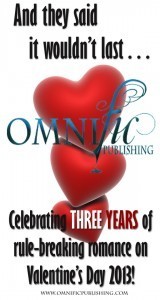 To celebrate its third year in business, my publisher Omnific is giving away THREE KINDLES for THREE GREAT YEARS!
To celebrate its third year in business, my publisher Omnific is giving away THREE KINDLES for THREE GREAT YEARS!
Kindle #1 will feature all of Omnific’s 2010 titles:
Passion Fish
Three Daves
Seers of Light
Boycotts & Barflies
A Valentine Anthology
The Unidentified Redhead
Stitches and Scars
Eve of Samhain
Life, Liberty, and Pursuit
With Good Behavior
Trust in Advertising
Take the Cake
Immortal Awakening
The Redhead Revealed
Whisper of Light
Shades of Atlantis
Breaking Point
Whirlwind
Kindle #2 will feature all of Omnific’s 2011 titles:
Indivisible
Pleasures Untold
Bad Behavior
Pieces of Us
Becoming sage
Crushed Seraphim
The Way That You Play It
Big Guns
Concessions
It’s Only Kinky the First Time
Starstruck
New Flame
Shackled
Swim Recruit
Sway
Full Speed Ahead
The Second Sunrise
The Summer Prince
Whatever it Takes
Ember
Cat O’ Nine Tails
The Guardian’s Wildchild
Small Town Girl
Poughkeepsie
Embrace
Kindle #3 will feature all of Omnific’s 2012/2013 titles:
Destiny’s Fire
Grave Refrain
Streamline
Burning Embers
Saving sunni
Cocktails and Dreams
The Winemaker’s Dinner: No Reservations
The Winemaker’s Dinner: RSVP
The Winemaker’s Dinner: Appetizers
Recaptured Dreams
Clarity
Divinity
Glimpse of Light
Circle of Light
Iridescent
Between the Lies
Reaping Me Softly
Once Upon a Second Chance
Bittersweet Seraphim
Wallbanger
The Winemaker’s Dinner: Entree
A Christmas Wish
Blood Vine
Enter to win via Rafflecopter on the Omnific Publishing Blog February 14 -16, 2013: http://omnificpublishing.blogspot.com/
Good luck, and here’s to many more years of smart, sexy, rule-breaking romance!


